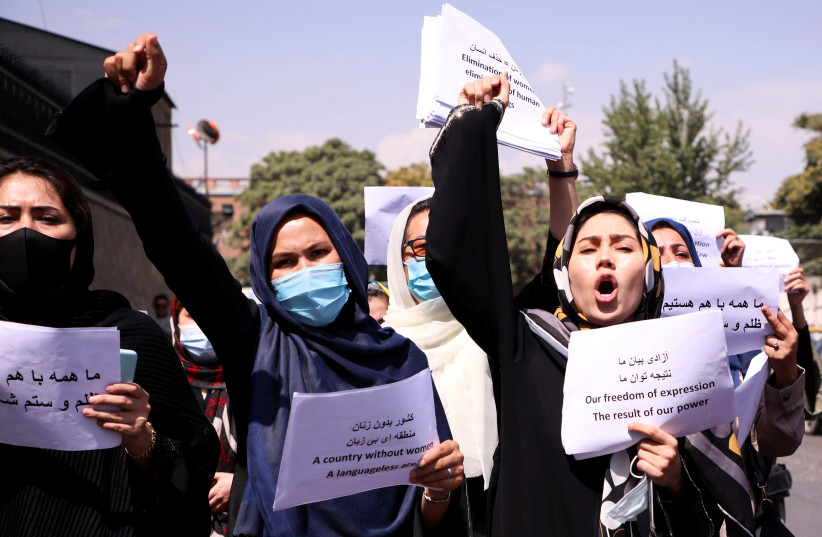At least 220 former female judges in Afghanistan who in the past had ruled against Taliban members are in danger of retribution by the men they convicted, according to a BBC investigation.
The Taliban released all of its jailed members after taking over the country last month, even those who had committed heinous crimes.
The BBC spoke to six former female judges, who were some of the most well-known and powerful women in Afghanistan before the Taliban's takeover.
All the women told a similar story — soon after the Taliban released its jailed members, they began to receive death threats. All the women were forced to change their cellphone numbers and leave their homes, often living on the run and changing locations every few days.
Some of the women tried to leave the country, but experienced difficulties since not all of their family members had time to prepare proper documentation.
The former judges named at least four Taliban men who they had sent to prison for extended sentences for murdering their wives as people that had threatened them.

One of the former prisoners explicitly warned the judge that he would do the same to her as he did to his wife.
Some of them reported that their homes were visited by the former prisoners and that their neighbors were questions as to their whereabouts.
"Female judges should live like any other family without fear. No-one should threaten them. Our special military units are obliged to investigate such complaints and act if there is a violation." Taliban spokesman Bilal Karimi told the BBC in response to the accusations.
When the Taliban were last in power from 1996-2001 girls were not allowed to attend school and women were banned from work and education. During that period its Ministry for Promotion of Virtue and Prevention of Vice became known as the group's moral police, enforcing its interpretation of sharia that included a strict dress code and public executions and floggings.
This time around, Taliban rulers made public promises to preserve women's rights, but in practice is doing the opposite, similar to its actions 25 years ago. The Taliban have ordered women to stay at home, blocked teenage girls from going to school have conducted house-to-house searches for former foes.
